Education in Nigeria is changing, and one of the biggest changes in recent years is the review of the primary school curriculum. If you are a parent, teacher, or guardian, you may have already noticed conversations in schools and online groups about new subjects like Digital Literacy and Pre-Vocational Studies.
The goal of this blog post is to give you a clear, detailed guide to the new Nigerian primary school curriculum for Primary 1–3. We’ll look at the old structure, the new subjects, why these changes matter, and how you can get the full official curriculum.
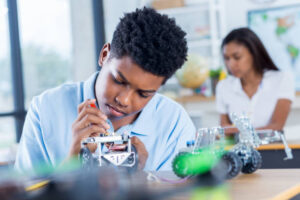
Check Also: Top 13 Best Secondary Schools in Nigeria
Why Was the Curriculum Reviewed?
For years, parents and educators complained that Nigerian pupils were overloaded with too many subjects. The old system often repeated topics and did not prepare children for real-life skills, especially in today’s digital world.
The Federal Government, through the Universal Basic Education Commission (UBEC) and the Nigerian Educational Research and Development Council (NERDC), decided to review the basic education curriculum. The aim was to:
- Reduce subject overload.
- Emphasize practical skills that children can use in real life.
- Prepare pupils for the digital age.
- Strengthen values, culture, and patriotism.
- Make learning child-centered rather than teacher-centered.
So all these complains led to the 2025 updated curriculum for Lower Basic (Primary 1–3).
Now let’s see the old structure and from there you can understand what changes.
The Old Curriculum for Primary 1–3 (NERDC version)
Before the review, these were the major subjects taught in Nigeria schools for Primary 1–3:
- English Studies
- Mathematics
- Nigerian Language (Igbo, Yoruba, Hausa, depending on the region)
- Basic Science & Technology (a combination of Basic Science, ICT, PHE, and Basic Technology)
- Religion & National Values (including CRK/IRK, Social Studies, Civic Education, and Security Education)
- Cultural & Creative Arts (CCA)
- Arabic (optional in some schools)
While this structure worked for a while, many teachers complained that it was too fragmented and difficult to manage, especially for children just starting school. So because of that, the government has amended it and below is the new Nigerian Primary School Curriculum for Primary 1–3 in detail.
Read Also: Top 10 Cheapest Boarding Schools in Nigeria
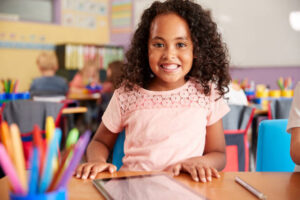
The New Curriculum for Primary 1–3 (2025)
The new curriculum simplifies the structure and introduces modern subjects. Here are the subjects:
- English Language
- Mathematics
- Basic Science and Technology
- Cultural & Creative Arts (CCA)
- Religion and National Values (CRK/IRK, Civic Education, etc.)
- Social Studies and Civic Education
- Nigerian Language (Igbo, Yoruba, Hausa, etc.)
- Basic Digital Literacy
- Pre-Vocational Studies
- (Arabic remains optional in some schools)
Detailed Breakdown of Each Subject
1. English Language
English remains the main language of instruction in Nigerian schools. At the primary level, it focuses on:
- Reading and comprehension.
- Writing simple sentences.
- Correct spelling and grammar.
- Listening and speaking skills.
Example: Pupils might be asked to read a short story and explain the moral lesson in their own words.
2. Mathematics
Math builds a strong foundation in numeracy. The topics include:
- Numbers and counting.
- Addition, subtraction, multiplication, and division.
- Shapes, sizes, and measurements.
- Problem-solving skills.
Example: Pupils may learn how to calculate change after buying sweets at a shop.
3. Basic Science and Technology
This subject combines elements of science and simple technology. It includes:
- Living and non-living things.
- The human body and health.
- Simple machines and tools.
- Introduction to energy and the environment.
Example: Pupils may plant a seed in a cup and watch it grow to understand photosynthesis.
4. Cultural & Creative Arts (CCA)
Cultural & Creative Arts helps children explore creativity and culture. Topics include:
- Drawing, painting, and craft.
- Music, drama, and dance.
- Nigerian traditions and festivals.
Example: Pupils may be asked to draw their family or perform a cultural dance on Cultural Day.
5. Religion and National Values
This subject focuses on building morals, faith, and patriotism. It includes:
- Christian Religious Knowledge (CRK) or Islamic Religious Knowledge (IRK).
- Civic Education.
- Moral instruction.
Example: Pupils learn honesty, kindness, and respect through Bible or Quran stories.
6. Social Studies and Civic Education
This subject helps pupils understand their society and responsibilities. Topics include:
- Family and community.
- Leadership and good citizenship.
- Nigerian history and geography.
- Rights and responsibilities of children.
Example: Pupils may role-play as community leaders during lessons.
7. Nigerian Language
Every child in this country is encouraged to learn at least one Nigerian language (Igbo, Yoruba, Hausa, etc.). This strengthens cultural identity and unity.
Example: Pupils may learn to greet elders in Igbo (“Ndeewo”) or Yoruba (“E kaaro”).
8. Basic Digital Literacy
This is one of the new subjects. It introduces pupils to computers and technology. Topics include:
- Identifying parts of a computer.
- Basic typing skills.
- Safe use of the internet.
- Using educational apps.
Example: Pupils may be taught how to type their names on a computer keyboard.
9. Pre-Vocational Studies
Another subject in the New Nigerian primary school curriculum for Primary 1–3 (2025 update) is Pre-vocational studies, this equips children with practical life skills. Topics include:
- Gardening and simple farming.
- Home management.
- Handicrafts and simple trades.
- Entrepreneurial thinking.
Example: Pupils may plant vegetables in small school gardens or weave baskets.
10. Arabic (Optional)
Arabic is also a new subject for primary 1 to 3, but it remains optional, depending on the school and community.
That said, now let’s see the actual differences between the old and new Nigerian primary school curriculum for primary 1–3 (2025 Update).
Read Also: Top 12 Best Jamb-Prep Secondary Schools in Nigeria 2025/2026
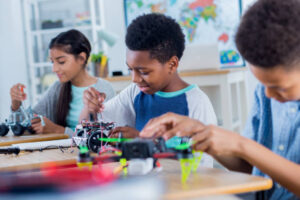
Key Differences Between Old and New Curriculum
- Digital literacy is now a subject on its own.
- Pre-vocational studies introduced to promote skills.
- Stronger emphasis on Nigerian languages and values.
- Subjects are more child-friendly and less fragmented.
Now I know the next question in your mind is, but why this new curriculum?
Why This New Curriculum Matters
- Pupils gain 21st-century skills like digital literacy.
- Children learn practical life skills early.
- The burden of too many subjects is reduced.
- Values, culture, and patriotism are reinforced.
- Pupils are better prepared for higher classes.
How to Get the Full Official Curriculum
If you want the detailed, official version of the curriculum, you can get it from:
- UBEC Website – Here
- NERDC Website – Click Here
- State Ministries of Education – they often provide free copies to schools.
- Your child’s school – head teachers usually have the full curriculum guide.
See Also: Top 12 Best Christian Secondary Schools in Nigeria

FAQs for New Nigerian Primary School Curriculum for Primary 1–3 (2025 Update)
You can also check out these frequently asked questions and answers about the new Nigerian school curriculum that might help you as well:
Q1. Is this curriculum compulsory for all schools?
Yes, all public and approved private schools are expected to follow this new Nigerian primary school curriculum.
Q2. Do private schools also use this curriculum?
Yes, most private schools adapt it but may add extra subjects like French or Coding.
Q3. What makes this curriculum better?
It reduces overload and adds skills like Digital Literacy and Pre-Vocational Studies.
Q4. Will it affect WAEC or NECO later on?
Yes, because the foundation pupils get in Primary school influences what they study at secondary level.
Q5. Can parents get the curriculum online?
Yes, you can confirm this new Nigerian primary School Curriculum for Primary 1–3 (2025 Update) through UBEC, NERDC, or from schools directly.
Final Words
The new Nigerian Primary School Curriculum for Primary 1–3 is a step in the right direction. It equips children with strong literacy and numeracy skills, prepares them for the digital world, and helps them appreciate culture and values.
As a parent or teacher, understanding this curriculum will help you support children better. Whether it’s teaching them how to use a computer, encouraging them to speak their mother tongue, or guiding them in moral values, every subject has a role in shaping Nigeria’s future leaders.
Hope you find this helpful.
Please feel free to share this insightful post on your social handles to help parents and teachers who might need it.
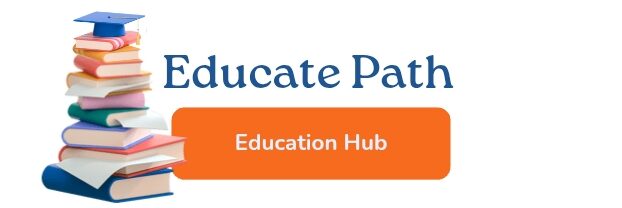
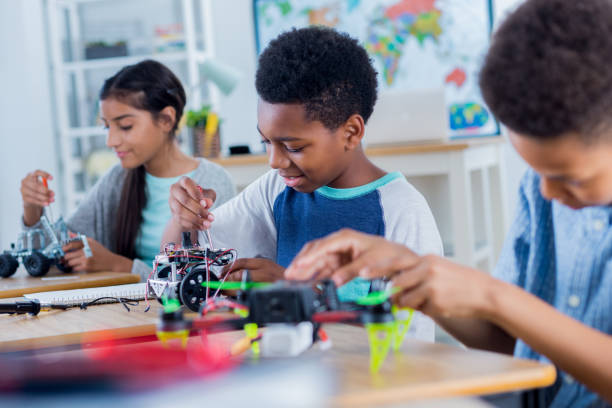

When can we as school owners get the contents(scheme-of work ) for the subjects combination before the resumption of the academic session 2025/2026?
The scheme of work for the subjects combination will be given out to school owners after the resumption of schools. But you can always check for updates on NERDC official website.